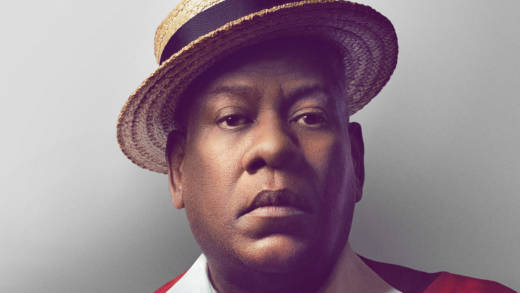“You can be aristocratic without having been born into an aristocratic family.” This is the gospel according to André Leon Talley, who rose from a childhood in segregated Durham, North Carolina, to become a fashion maven with Vogue, Women’s Wear Daily, Andy Warhol’s Factory and America’s Next Top Model. The things that made Talley an outcast in childhood (his race, his larger-than-life stature, his sexuality, his affinity for capes) were what gave him the aura of royalty once he entered the fashion world. You won’t learn many dress tips from the new documentary The Gospel According to André, or even more than a passing glimpse of him at work, but you will get a lovely taste of Talley’s style philosophy.
It’s a mindset that largely sounds familiar, even to those of us who wouldn’t know a Tom Ford from a Henry Ford: Style is about embracing yourself. Talley has done that since he was a young churchgoer. Whereas many if not most high-fashion folk are reluctant to embrace spirituality unless it’s ironic, Talley has made his upbringing in the black church central to his life’s work. After all, as he says, Church Sunday is basically a fashion show, where everyone turns up in their finely pressed best. In the church segments, as in elsewhere in the film, you’ll find yourself wishing for just a little more insight into how Talley sees these different factors of his identity — a lot of the movie’s wisdom coasts by on simply noting that there was no one else in the fashion world who looked like him.
Director Kate Novack has an affinity for New York’s cultural institutions, having produced documentaries on The New York Times and famed restaurant Le Cirque. For her, Talley is a gateway into the luxurious, sometimes outlandish world of Manhattan high fashion — and, it should be noted, a safe gateway. Talley’s early apprenticeships with Andy Warhol and Diana Vreeland made him a regular at Studio 54 in the late ’70s and ’80s, but he strenuously insists that he never partook in the drugs and casual sex that characterized the scene. (The film implies this was his church upbringing paying off.) While everyone else was riding the hedonism, Talley became a sort of gentle giant cheerleader for industry pillars like Anna Wintour, Valentino and Marc Jacobs, who gush about him on camera; meanwhile, privately, he laments that he put so much effort into his work that he was never able to find happiness in a romantic partner.
Novack’s choice of footage favors the quirky or odd over the informative. Scenes of Talley at his estate in White Plains, watching construction workers cut down a tree, tell us little about who he is as a person. Ditto when he visits Isabella Rossellini’s pig farms; the point of the sequence is to brag that he can casually hang out with Rossellini, and laugh at her pigs, rather than to reveal anything new about Talley himself. The film dwells on stuff like this instead of more thought-provoking moments from Talley’s career, like his brief sojourn with Numéro Russia, where he left a lucrative editor-at-large role in 2014 after he learned about Russia’s numerous anti-LGBT laws. But there is a revealing moment where Talley discusses a Saint Laurent employee who used to call him “Queen Kong,” and the shame he feels at never having told her to stop saying it.


